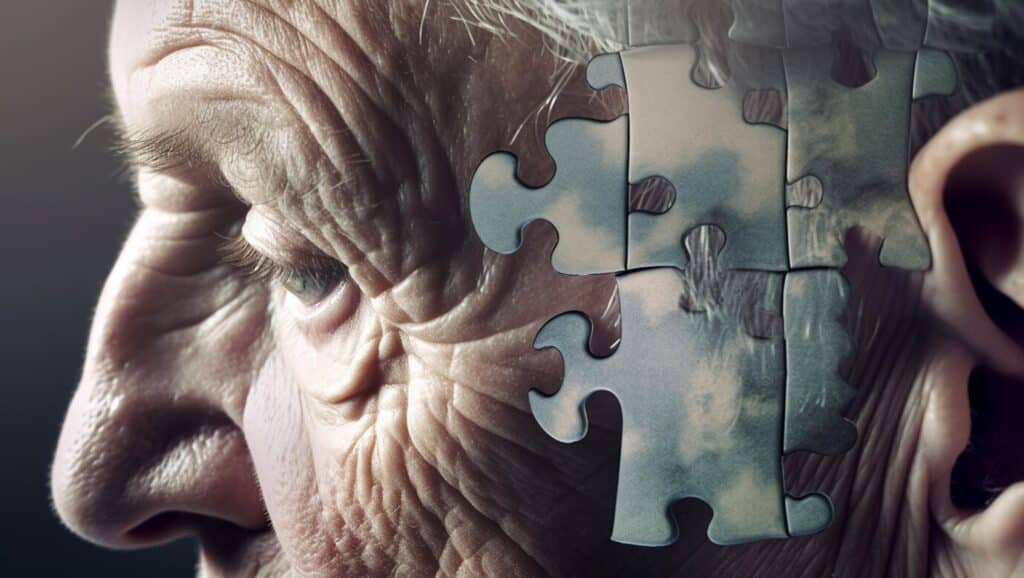Experts Say Early Signs of Alzheimer’s Are in the Eye
Alzheimer’s disease often begins subtly, and scientists are finding that one of the first places it shows up is in the eyes. Recent research reveals that early signs of Alzheimer’s are in the eye, visible before memory loss or confusion. The retina can reflect changes in brain health, and regular eye exams could become a groundbreaking tool for early detection. At Oceanview Senior Living, we believe in staying ahead of the curve. Monitoring eye health and supporting cognitive wellness go hand in hand, especially as you or your loved one ages. By taking these proactive steps, you protect your vision and future. Learn how routine checkups and nutrition could change how we detect Alzheimer’s. Discover more here.
Understanding Why Dementia Eyes Look Different
As research advances, one of the more surprising discoveries is how dementia eyes look different from healthy ones. In people with Alzheimer’s, subtle retinal changes, such as thinning nerve layers and amyloid plaque deposits, may appear long before noticeable memory issues arise. These retinal differences could offer vital clues, making eye exams an essential line of defense. Focusing on retinal structure and function gives us a unique window into the early effects of neurodegeneration.
Why Early Signs of Alzheimer’s in 60s Matter
For many, the 60s bring significant life changes, including retirement and more time with family. Unfortunately, this is also when early signs of Alzheimer’s in the 60s tend to emerge. Often dismissed as age-related forgetfulness, symptoms like difficulty recalling names or organizing daily activities could signal the start of cognitive decline. This is why integrating eye assessments into overall health checks during this decade becomes critical. Spotting retinal changes early offers hope for slowing progression and planning care strategies.
The Science Behind the Eye-Brain Connection
The eye is an extension of the brain, connected through the optic nerve, which means it’s uniquely positioned to reflect neurological changes. When you understand that early signs of Alzheimer’s are in the eye, it changes how we view both vision and memory care. Advanced imaging can now identify specific abnormalities in the retina associated with cognitive decline. This is more than science; it’s a shift in how we detect and understand Alzheimer’s at its earliest stages. See how your vision can reveal more.

Recognizing Early Signs of Dementia in Women
Although Alzheimer’s affects everyone differently, early signs of dementia in women may manifest with subtle emotional or language changes before memory loss becomes apparent. Eye tracking and visual tests are showing promise in identifying these gender-based differences. Women may experience increased visual sensitivity or contrast perception issues that aren’t always linked to cognitive decline right away. Knowing these distinctions helps create personalized care pathways and boost early intervention efforts.
Spotting Early Signs of Dementia in Men
In contrast, early signs of dementia in men can lean more toward spatial disorientation and difficulties with tasks that require coordination skills closely tied to vision. Men might also experience challenges recognizing familiar faces or judging distances. These issues can become apparent during routine eye exams, further proving that what’s happening in the eyes reflects what’s happening in the brain. By catching these indicators early, families can better prepare and respond with appropriate support systems. Get tips on healthy aging.
How Regular Eye Exams Support Cognitive Health
At Oceanview Senior Living, we encourage everyone to treat annual eye exams as essential as any doctor visit. The more we learn, the clearer it becomes that early signs of Alzheimer’s are in the eye, and skipping checkups means missing opportunities. Eye doctors can now monitor retinal blood flow, nerve fiber thickness, and other critical markers linked to dementia. Staying on top of these changes gives you or your loved one the best chance at early detection and care planning.

Advantages of OCTA in Alzheimer’s Detection
Lifestyle and Nutrition for Eye and Brain Health
Supporting cognitive health through lifestyle starts with your plate. Nutrients like omega-3s, antioxidants, and vitamin E help protect both your eyes and brain. Combined with regular physical activity and social engagement, these choices promote better brain function. And remember, if you’re in your 60s, these decisions are even more critical, as early signs of Alzheimer’s in your 60s can still be slowed. It’s not just about prevention—it’s about giving yourself the best shot at a high quality of life.
Future Tools for Alzheimer’s Detection Through the Eyes
Technology is catching up with what researchers already believe: the eye might be the best place to catch Alzheimer’s early. Optical coherence tomography and AI-enhanced retinal scans could become mainstream tools in memory care. With more studies confirming that early signs of Alzheimer’s are in the eye, we’re moving closer to routine screenings that are fast, non-invasive, and highly accurate. Learn how to prepare for these advancements.
Oceanview Senior Living is proud to support families navigating memory care. Call 541-574-0550 to schedule a tour or speak with our care advisors. Let us help you take proactive steps today for a better tomorrow.
How Do The Costs Of Moving Into A Quality Senior Care Community Compare With The Costs Of Staying At Home?Compare The Costs of Senior Living vs Staying at Home
Frequently Asked Questions
What are the first signs of Alzheimer’s in the eyes?
Early signs of Alzheimer’s in the eyes can include changes in the retina, such as thinning or the buildup of amyloid plaques. People may also notice subtle vision issues, like trouble with depth perception or difficulty reading. These changes are often not apparent initially but can be detected through advanced eye imaging. Ongoing research explores how the eyes may reveal neurological changes early on.
What is one of the very early signs of Alzheimer’s disease?
One of the earliest signs of Alzheimer’s is mild memory loss, especially forgetting recently learned information. Individuals might also struggle with planning or problem-solving tasks they once handled efficiently. This stage is often referred to as mild cognitive impairment (MCI), which may or may not progress to Alzheimer’s. These subtle changes can appear years before a formal diagnosis.
What is the early warning of Alzheimer’s?
Early warnings of Alzheimer’s can include memory lapses, confusion with time or place, and difficulty completing familiar tasks. A person might repeat questions, lose items frequently, or struggle to find the right words during conversation. These signs tend to worsen over time, making early recognition crucial. Seeking medical advice early can lead to better planning and care options.
Can Alzheimer’s be detected in an eye test?
Some advanced eye tests can help detect signs of Alzheimer’s by identifying changes in the retina or optic nerve. These tests are not yet standard for diagnosing Alzheimer’s but are being studied as potential noninvasive screening tools. The goal is to find markers in the eyes that reflect changes in the brain. While promising, these methods are still under research and not widely used in clinical practice.








